
The share of Greek innovative enterprises for the three-year period 2014-2016 has reached 57.7%. This stands as an increase of 6.7 percentage points in comparison with the 2012-2014 period, according to the preliminary data published from the National Documentation Centre’s (EKT) official statistical survey for innovation in Greek enterprises.
The survey was conducted jointly with the Hellenic Statistical Authority (ELSTAT) in order to complete the European-wide 2014-2016 round of the Community Innovation Survey (CIS). CIS measures innovation and innovative activities of enterprises within the EU. In Greece, the survey was based on some 11,000 Greek enterprises with 10 or more employees, in various sectors of economic activity. The statistical products have been transmitted to Eurostat.
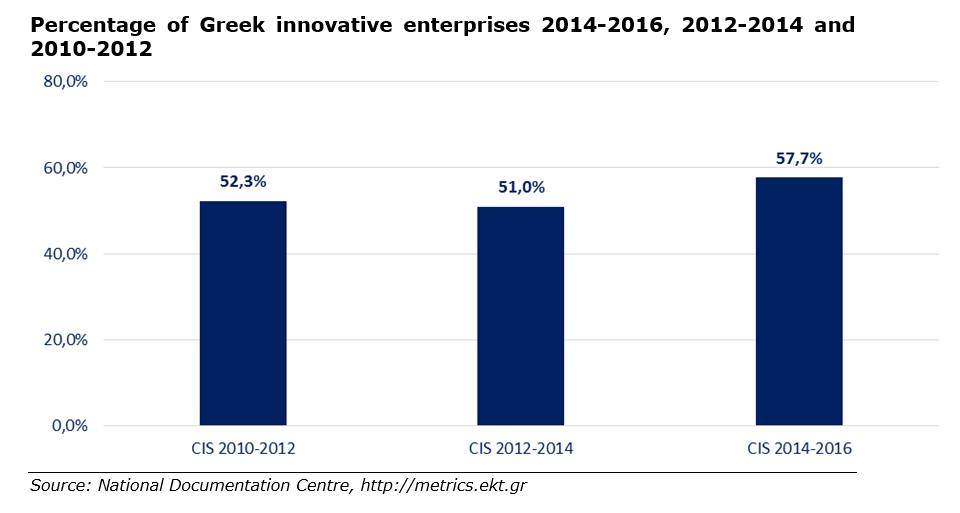
According to the results, 57.7% of Greek innovative enterprises implemented at least one of the following types of innovation: product innovations, process innovations, organisational innovations, marketing innovations. In comparison with the two previous three-year periods (2010-2012 and 2012-2014), the overall rate has increased 6.7 and 5.4 percentage points, respectively.
During 2014-2016, 47.1% of Greek enterprises were innovative in products and/or processes. In comparison to 2012-2014, an increase of 8.4 percentage points is recorded. Similarly, a 12.8 percentage points increase is found when compared with 2012-2014.
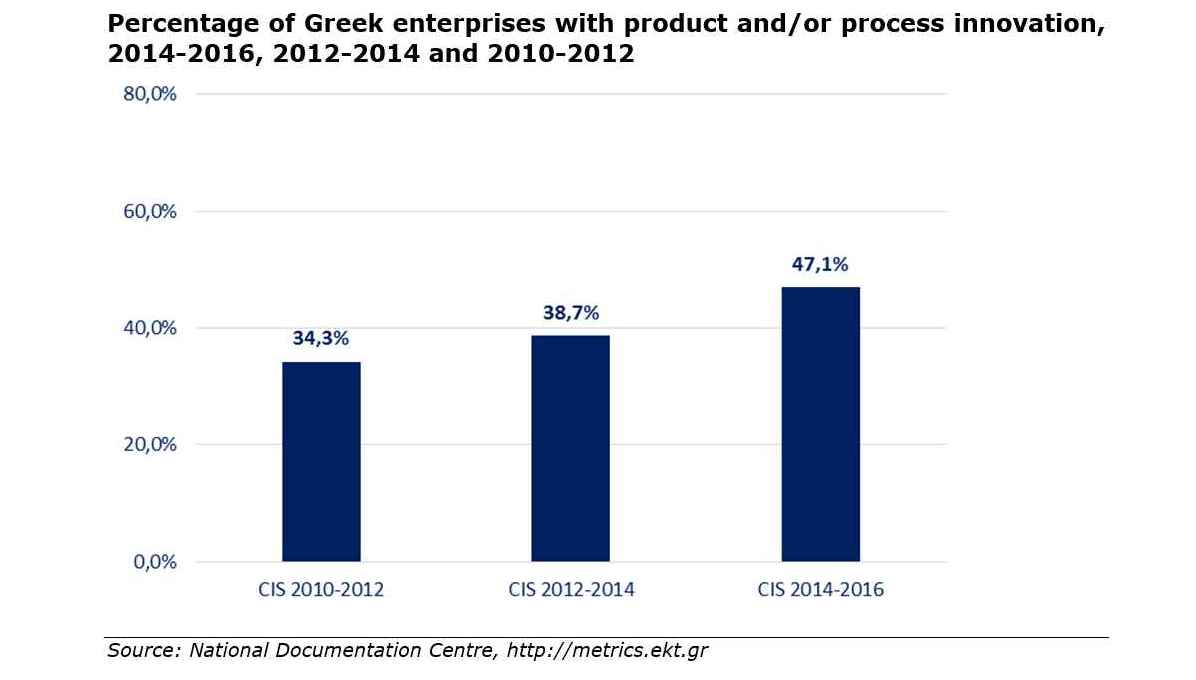
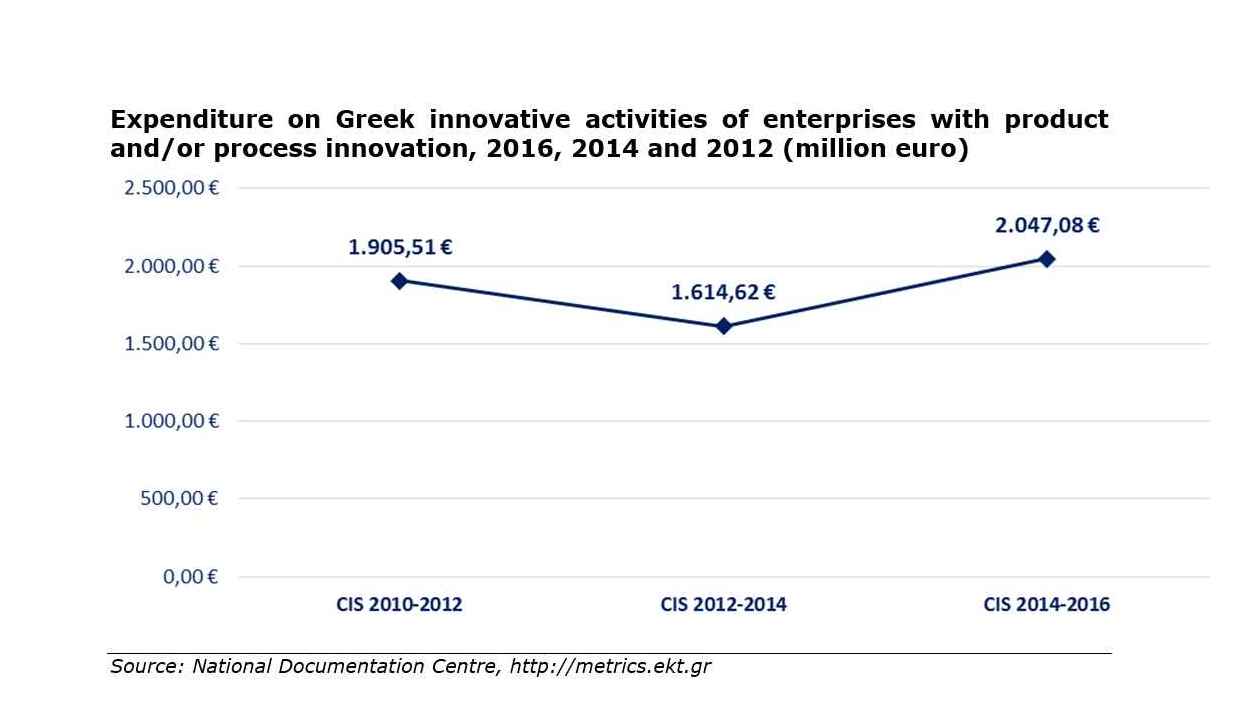
Business investments for the development of product and/or process innovation exceeded 2 billion euros in 2016 (2,047.08 million euros), 432.5 million euros more than 2014 and 141.6 million euros more than 2012.
During 2014-2016, 46.7% of Greek enterprises were innovative in organisation and/or marketing innovations. In comparison to 2012-2014, an increase of 6.1 percentage points is recorded. Similarly, a 1.4 percentage points' increase is found when compared to 2010-2012.
Concerning individual sectors of economic activity, the innovation rate in the Industry sector reached 59.5% during 2014-2016, an improvement on the 54.5% of 2012-2014 and 52.8% of 2010-2012. There was a similar improvement in the Services sector, with the percentage increasing to 56.5 for 2014-2016, from 48.0 for 2012-2014.
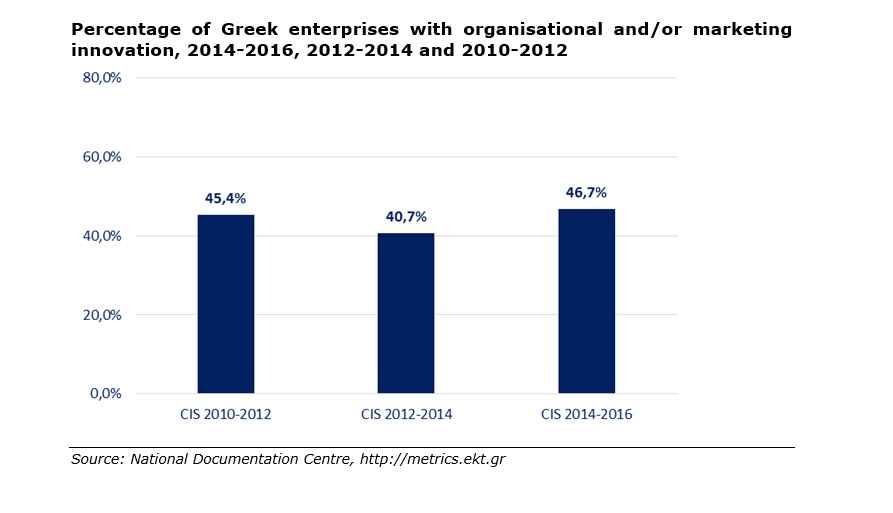
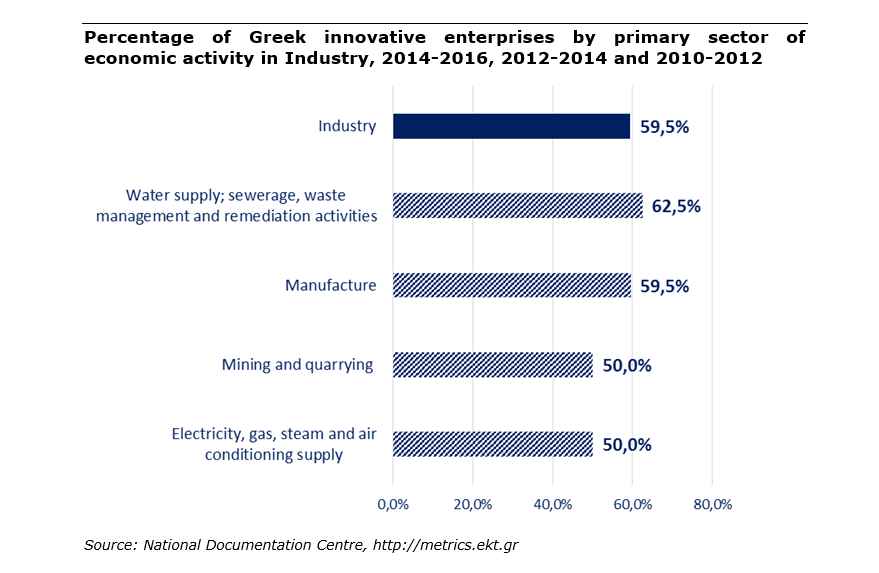
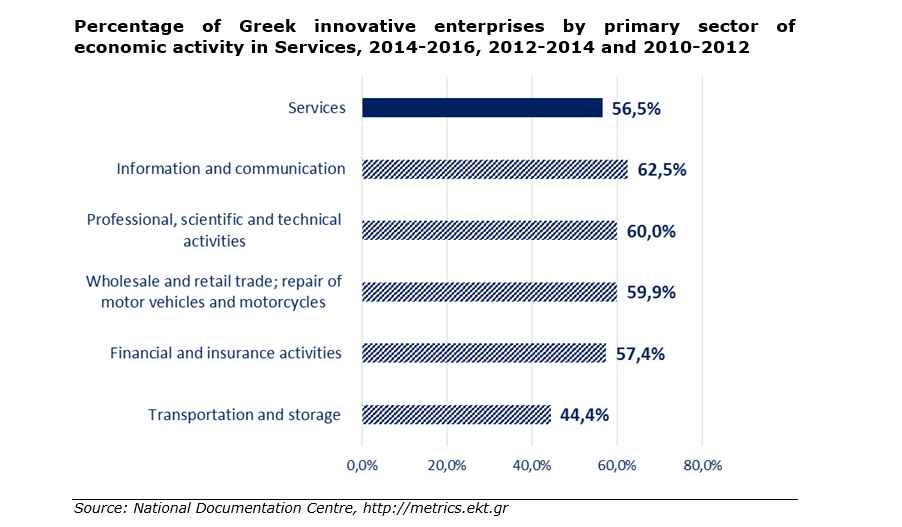
A corresponding increase was recorded for individual indicators of the CIS survey. These indicators are to be included in the upcoming European Innovation Survey publication (EIS). EIS provides an annual comparative analysis of the performance of EU member states including indicators that monitor the environment and conditions for innovation, the human and financial resources, the business innovations and their impact on employment and the economy.
The six indicators that were provided by EKT for the EIS publication covered: the degree to which product and/or process innovations were the result of in-house innovations; the introduction of product/process innovations; the introduction of marketing/organisational innovations; the degree of innovators collaborating with others; non-R&D innovation expenditure; and, sales of new to market and new to firm innovations. Accordingly, during 2014-2016, the performance of Greek enterprises improved in all of the aforementioned indicators when compared with that of the previous time period.
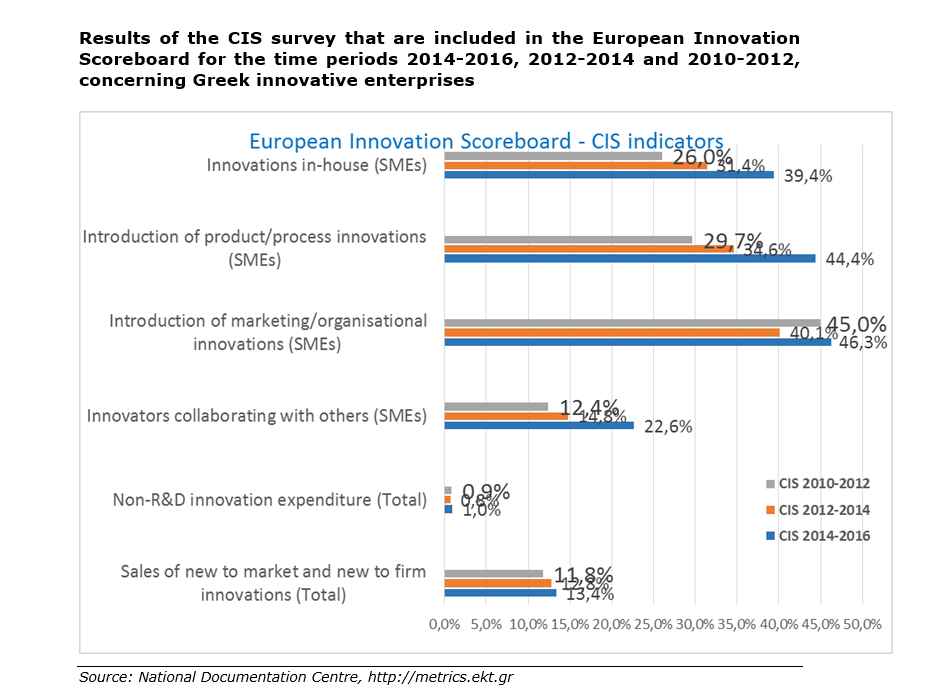
Note that statistics and indicators for Research, Development and Innovation in Greece are produced, published and transmitted regularly by EKT to Eurostat and OECD. Detailed statistical analysis and indicators can be accessed at: http://metrics.ekt.gr.
The CIS survey for 2014-2016 was funded by "Production of RIS3 Indicators for 2016-2013" project and was implemented by the EKT. The relevant statistical products were incorporated into the "Monitoring Mechanism of the Collection and Production of Indicators". The project is co-funded by Greece and the European Union (European Regional Development Fund) through the Operational Programme "Competitiveness, Entrepreneurship, and Innovation 2014-2020".








